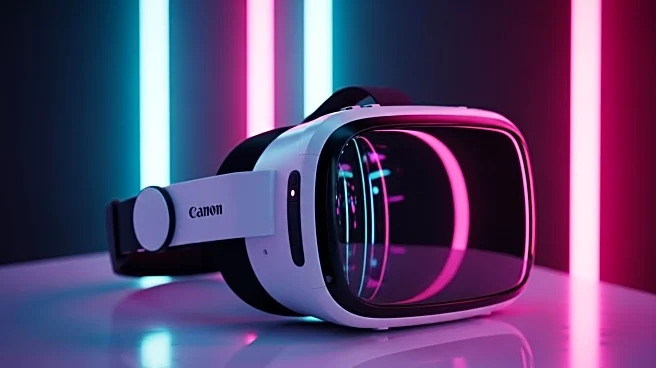What's Happening?
Virtual reality technology is transforming social interactions, as demonstrated by a visit to a virtual nightclub. Guided by VR researcher Karl Clarke, the experience highlights the potential of VR in various fields, including movie production, military training, rehabilitation, and health. The technology is also being used to train AI models and understand social dynamics. The immersive nature of virtual environments allows for manipulation of social presence, offering new insights into human behavior and interaction. This exploration suggests that the concept of fully immersive virtual worlds, as depicted in science fiction, is becoming a reality.
Why It's Important?
The advancement of VR technology has significant implications for industries and social interactions. By providing a platform for immersive experiences, VR can enhance training, therapy, and entertainment, offering new opportunities for innovation and engagement. The ability to manipulate social presence in virtual environments can lead to a deeper understanding of human behavior, potentially influencing fields such as psychology and sociology. As VR becomes more integrated into daily life, it may change how people connect and communicate, challenging traditional notions of social interaction.
What's Next?
As VR technology continues to evolve, we can expect further integration into various sectors, with potential applications in education, healthcare, and business. The development of more sophisticated virtual environments may lead to new forms of social interaction and collaboration, transforming how people engage with each other and the world. Ethical considerations, such as privacy and the impact of virtual experiences on mental health, will need to be addressed as the technology becomes more widespread.
Beyond the Headlines
The rise of virtual environments highlights the intersection of technology and human interaction, offering new possibilities for connection and expression. This development may lead to broader cultural shifts in how people perceive reality and identity, challenging traditional boundaries and norms. The integration of VR into everyday life raises questions about the nature of human experience and the potential for technology to reshape society.










